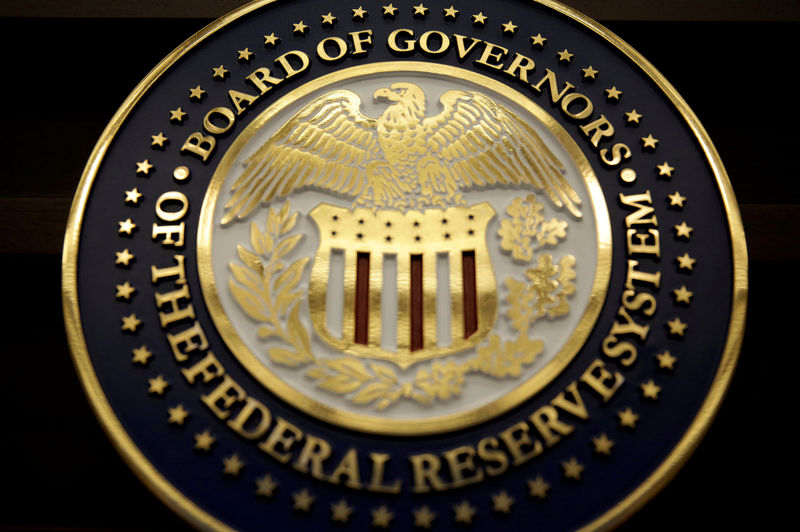 © Reuters.
© Reuters. Investing.com – The newly released median forecast from the FOMC calls for the bank to hold rates at 5.6% by the end of the year, implying two 25 basis point increases to come.
read more:
Powell sent a stark message that inflation was at dangerous levels. Although the CPI fell to a less-than-expected and modest-looking 4% in May, Powell emphasized that the “core” figure, excluding food and energy, was alarmingly high at 5.3%. In addition to the core CPI — the labor market — “being very tight,” Powell also emphasized the second major factor determining the Fed’s action.
The bottom line: Unless forward-looking data shows the economy is headed for a recession, the Fed will continue to raise borrowing costs to curb consumer spending and ease labor and wage pressures. As Powell said on June 14, “The process of bringing inflation under control has a long way to go.”
The cryptocurrency market has been hit hard after Binance and Coinbase were accused of lying and fraud by US regulators.
What is interesting about these allegations is that they were against two major digital currency exchanges, which could lead to continued market collapse if they fall. So, is your money at risk? Or procedures that lead to nothing?.. To know the answer, register for the following free seminar: Click Here
The central bank gets it wrong
Steve Hanke and Cam Harvey pioneered two different schools of economics. Hanke, a professor of applied economics at Johns Hopkins University, is a staunch monetarist who believes that the main source of inflation is the growth of the money supply. Harvey, a Duke University economist, focuses on the “yield curve.” It examines the difference between short- and long-term interest rates to predict where the economy is headed, and thus how the central bank should use its tools. But both Hanke and Harvey agree that, by their own measure, inflation is already over, and that by continuing to push higher, the Fed could push the U.S. into an unnecessary, and possibly severe, recession.
“The Fed should have backed off all hikes in June, and all they did was move the pace of hikes lower,” Harvey said. Basis points will do more damage.” Most likely a recession later this year or in 2024 will be hurt by the Fed.”
Hanke insists the central bank is only focused on data, particularly core inflation and the state of the labor market. The central bank does not control the money supply, the driving force behind all economic activity.
Hanke says that because the key CPI misses important commodity prices, it loses a realistic guide to where inflation is headed: “Commodity prices always rise sharply within one to nine months after a large increase in the money supply, where supply unexpectedly bursts. Unprecedented in 2020 and 2021.” Hanke points out that oil and agricultural commodity prices are not as stable as rent or housing prices. They are more sensitive to real-time changes in supply and demand.
Haneke added, “Federal Reserve Chairman Jerome Powell has announced that the Reserves will temporarily stop raising interest rates and then return to further monetary tightening by raising interest rates.”
A more deadly scene
Hankey expressed his surprise at the Federal Reserve’s approach, explaining that “the money supply has shrunk by 4.6 percent of total monetary assets at major U.S. commercial banks since April 2022.” 2024 is even more deadly.”
To support his point, Hanke cited the opinion of a key lecturer at the York Group, Canadian economist Campbell Harvey, who said that “the next recession will be a wound inflicted by the Federal Reserve.”
“The truth is, the Fed focused on lagging indicators — tools that gauge the strength or weakness of economies or financial markets — and ignored the real indicator, the money supply,” Hanke asserted. “The central bank’s logic is inexplicable.”
For Hanke, the central bank’s continued hikes and quantitative tightening are highly misleading because they cause a sharp contraction in the money supply. “We haven’t seen a contraction in the volume of money supply since 1937 and 1938,” says Hanke. In addition, he notes, demand for credit decreases as businesses fear deflation, lending shrinks and regulation tightens as banks lose deposits and cut back on lending. “And yet, the central bank is implementing this crazy policy of credit crunch, quantitative tightening, tight controls. They’re using the wrong model. I don’t believe they’re going to change anything.”

“Award-winning beer geek. Extreme coffeeaholic. Introvert. Avid travel specialist. Hipster-friendly communicator.”

